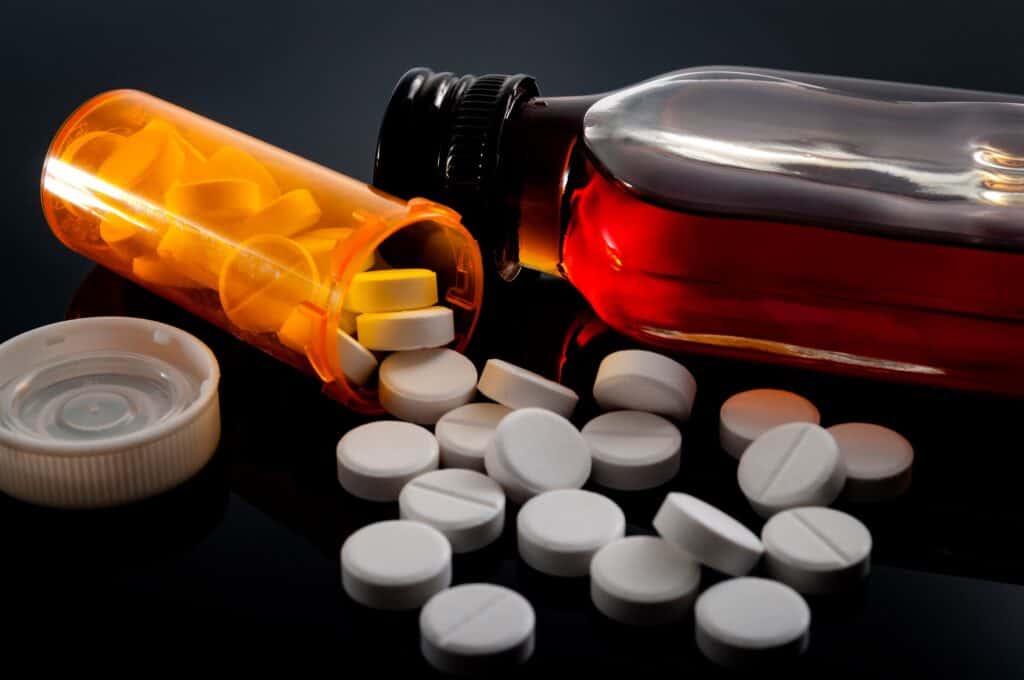Symptoms of Opioid Addiction
Opioid addiction has become a major public health crisis in recent years, affecting millions worldwide. The symptoms of opioid addiction are varied and multifaceted, often reflecting the complex nature of the disorder. Understanding these symptoms is crucial for early detection, intervention, and effective treatment approaches to mitigate the impact of opioid addiction.
Is Opioid Addiction Considered a Disease?
Opioid addiction is widely recognized as a disease by medical professionals and organizations. It is classified as a chronic brain disorder that affects the brain’s reward system. Additionally, opioid addiction alters the structure and function of the brain, impairing decision-making abilities, motivation, and self-control.
Just like other chronic diseases such as diabetes or hypertension, opioid addiction requires long-term management and treatment. Acknowledging addiction as a disease is important to ensure individuals receive appropriate care and support for their recovery.

What Causes Opioid Addiction?
The causes of opioid addiction involve genetic, environmental, and psychological factors. While not everyone who uses opioids will develop an addiction, certain individuals may be more susceptible due to various risk factors.
Genetics
Research suggests that genetics play a role in determining an individual’s susceptibility to developing opioid addiction. Certain genetics can affect how opioids interact with the brain’s reward system, increasing the likelihood of addiction.
Environmental Factors
For instance, individuals who have friends or family members with substance abuse issues are more likely to develop addictive behaviors themselves. In addition, easy access to opioids, exposure to trauma, or stressful environments can increase the risk of opioid addiction.
Mental Health
Individuals with underlying mental health conditions such as depression, anxiety disorders, or post-traumatic stress disorder may be more vulnerable to developing opioid addiction. Opioids are sometimes used to self-medicate and alleviate emotional pain or distress.
Prescription Drug Use
Misuse or overuse of prescription opioids for legitimate medical purposes can lead to addiction. Prolonged use of these medications can alter brain chemistry and create dependence.

Symptoms of Opioid Addiction
The symptoms of opioid addiction can manifest in various ways, affecting individuals’ physical and psychological well-being. Some common symptoms include:
- Compulsive drug-seeking behavior: Individuals with opioid addiction often display an intense urge to obtain and use opioids.
- Increasing tolerance: Over time, the body develops a tolerance to opioids, requiring higher doses to achieve the desired effect. This can lead to escalating drug use as individuals chase the euphoric sensation they once experienced.
- Withdrawal symptoms: When attempting to quit or reduce opioid use, individuals may experience withdrawal symptoms that can be highly uncomfortable and often contribute to continued opioid use.
- Physical dependence: Opioid addiction is characterized by physical dependence, meaning the body has adapted to the presence of opioids and relies on them to function normally.
- Neglected responsibilities: Individuals may neglect important obligations such as family, work, or school responsibilities.
- Social isolation: Opioid addiction can lead to social withdrawal as individuals prioritize drug use over maintaining relationships with loved ones.
- Continued use despite negative consequences: Despite experiencing adverse effects such as health complications, financial strain, or damaged relationships, individuals continue to use opioids compulsively and uncontrollably.
- Loss of interest: Opioid addiction commonly leads to a diminished interest in activities and hobbies that were once pleasurable or important.
- Behavioral changes: Individuals with opioid addiction may exhibit erratic behavior, mood swings, irritability, aggression, or agitation.
- Physical signs: There are physical indicators that can suggest opioid addiction, including constricted pupils (pupillary constriction), drowsiness, slowed breathing, frequent respiratory infections, and track marks at injection sites.
Preventing Opioid Addiction
Preventing opioid addiction is a critical endeavor that involves various strategies at both individual and societal levels. Some fundamental approaches that can help prevent and reduce opioid addiction include:
- Education Programs
- Responsible Prescribing Practices
- Non-opioid Pain Management Alternatives
- Easier Access to Naloxone
Opioid Addiction Treatment
Opioid addiction is a complex condition that requires comprehensive treatment approaches to address both the physical and psychological aspects of addiction using a variety of methodologies tailored to the individual’s needs.
Various therapeutic services like cognitive-behavioral therapy (CBT), contingency management, and motivational interviewing can be effective in helping individuals modify their behavior patterns associated with drug use, develop coping skills to avoid relapse, and address underlying issues contributing to addiction.
Furthermore, participating in support groups can provide individuals with a sense of community and peer support during their recovery journey. These groups offer a non-judgmental environment where participants can share experiences, gain insight, and learn from others facing similar challenges.
Access to dual-diagnosis treatment should be available for individuals with co-occurring conditions. These treatment programs simultaneously address addiction and mental health issues, ensuring comprehensive care.
Ongoing aftercare support is also crucial in maintaining long-term recovery. Aftercare services may include outpatient counseling, peer mentoring programs, sober living homes, and continued participation in support groups to reinforce sobriety and provide a supportive network.

Opioid Withdrawal Timeline
The opioid withdrawal timeline can vary depending on factors such as the specific opioid taken, the duration and intensity of use, individual physiology, and whether or not medications are used to assist in detoxification. Generally, the opioid withdrawal timeline follows several distinct stages:
- Early Withdrawal (within 6-12 hours): Initially, individuals may experience mild symptoms such as restlessness, anxiety, muscle aches, and difficulty sleeping.
- Peak Withdrawal (24-72 hours): The most intense withdrawal symptoms occur during this period. Symptoms may include increased heart rate and blood pressure, sweating, chills or hot flashes, intense cravings for opioids,
- Subacute Withdrawal (3-7 days): As the intensity of withdrawal symptoms begins to subside, individuals may still experience lingering physical and psychological discomfort. Symptoms such as insomnia, fatigue, irritability, and mood swings can persist.
- Post-Acute Withdrawal Syndrome (PAWS): Individuals may sometimes experience PAWS lasting for weeks or months. These symptoms vary but commonly include anxiety, depression, sleep disturbances, reduced concentration, and cravings for opioids.
Benefits of Opioid Detox Treatment
Medically supervised opioid detox treatment offers numerous benefits. It provides a safe and supervised detox in a caring and supportive environment. Next, it provides access to medical support and medication-assisted treatment for opioids to address any physical or psychological issues that arise and help alleviate the most severe withdrawal symptoms.
Additionally, supervised detox serves as the first step to long-term sobriety, with the opportunity to lay the foundation for recovery and transition into a treatment program upon completion.
Medication-Assisted Treatment for Opioids
Medication-Assisted Treatment for opioid addiction combines medications with behavioral therapies to treat individuals struggling with opioid addiction. It involves using specific medications, such as methadone, buprenorphine, or naltrexone, along with counseling.
Methadone is a long-acting opioid agonist that helps alleviate withdrawal symptoms and reduces drug cravings without producing a “high.” Buprenorphine is a partial opioid agonist that helps manage withdrawal symptoms and cravings.
Naltrexone is an opioid antagonist that blocks the effects of opioids on the brain’s receptors. Unlike methadone and buprenorphine, it does not relieve withdrawal symptoms or cravings. It is typically used after a person has detoxed from opioids and is committed to maintaining abstinence.

PHP and IOP Treatment for Opioid Addiction
PHP and IOP are two treatment programs that are used for opioid addiction.
A Partial Hospitalization Program (PHP) is a structured treatment program that allows individuals to receive intensive treatment during the day while returning home or to a supervised living environment in the evening. It provides comprehensive support, including medication-assisted treatment for opioids, counseling sessions, group therapy, educational workshops, and medical monitoring. PHP is suitable for individuals who require more than outpatient care but do not need 24-hour supervision.
An Intensive Outpatient Program (IOP) offers structured treatment several days weekly. It involves individual counseling, group therapy, and relapse prevention education. IOP allows individuals to live at home and maintain daily responsibilities while receiving ongoing recovery support.
How Effective Is Opioid Addiction Treatment?
Opioid addiction treatment, including medication-assisted treatment (MAT), has been shown to be effective in reducing opioid use, improving overall health outcomes, and supporting long-term recovery.

Start Recovery with Opioid Detox in Lexington, KY Today
Take the first step towards recovery and start your journey to lasting sobriety today at Lexington Addiction Center. We offer comprehensive opioid detox in Lexington, KY, along with addiction treatment programs tailored to your needs. Our experienced team of medical professionals is here to provide safe and compassionate care.
Contact us to begin your recovery today.
Did you know that your insurance plan may cover medical detox?
Resources
Contact Us
Set yourself free from the struggles of addiction and co-occurring mental health disorders. Reach out to our treatment team in Lexington, Kentucky today.